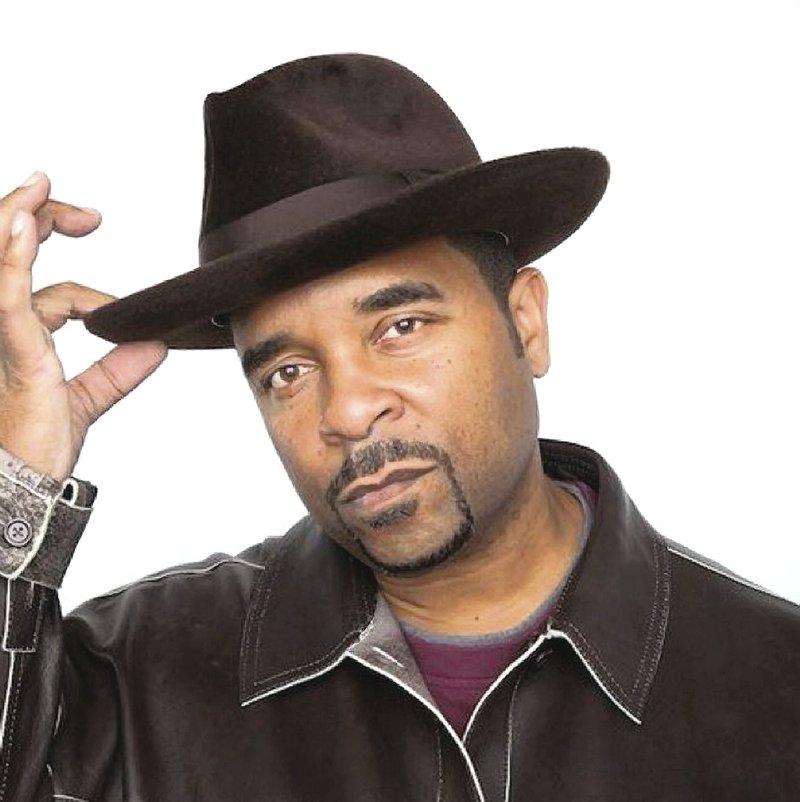It’s been six years since Anthony Ray — or as he’s better known, Sir Mix-a-Lot — rolled out his last single, “Carz,” and over a decade since the release of his album, “Daddy’s Home.” But that hasn’t kept him from returning to the tour life or from continuing to be involved in the music industry.
“Just cuz a guy’s not releasing records every weekend doesn’t mean he’s over. I stay pretty busy — I do a lot of quiet stuff,” Mix says by phone from the road. “It was never about the money. It’s just about loving music and the technology side of it. That’s what made me want to get into it.”
He hasn’t released new music recently, but almost three decades in the industry has given Mix a front row seat to its evolution on both the artistic and production sides.
FAQ
Sir Mix-a-Lot
WHEN — 8 p.m. today
WHERE — Choctaw Casino in Pocola, Okla.
COST — $25
INFO — choctawcasinos.com
“When I peaked, [the industry] was easy if you were in and hard if you were out,” he says. But, “you were not allowed to define who you were. If the record [company] wanted you to be ‘Sir Mix-a-lot’ the fat guy with the hat who likes butts, that’s who you were. They were not interested in promoting you as a [better] man.”
Now, Mix says, he’s the one in control of everything, but that has its downsides as well. He’s been hinting at releasing a seventh album, “Dun 4got About Mix,” for more than a few years — for which “Carz” would have been one of the singles — but has spent his time on the production side of the industry and, more recently, back on tour.
“I have probably 35 songs that are supposed to be on [the new album] but I control everything [now] so I guess I just have to give myself a self-imposed deadline,” he says with a laugh. “It’ll be a little different from what I used to do. It’s really just for people who follow me. I don’t think a lot of people want to hear a cat that’s 53 rap — even if he’s killing their heroes.”
Maybe not, but Mix seems to be attracting a decent blend of fans to his current shows. He knows because he spends a significant amount of time interacting with his audience, building the set list and moving songs around on the spot to cater to the fans each night.
“I stop and talk to my crowd a lot and they love it because they can identify with it,” he says of his shows. “The good side [of the current way of the industry] is that finally, artists get to have a one-on-one relationship with the fans. You get to define who you are. It’s kind of cool that a guy like Kanye West can do something crazy as hell on Monday and jump on Instagram the next day and clean that up. Artists take to the airwaves themselves and I love that.”
The people coming to see Sir Mix-a-Lot in concert now fall into two categories: what Mix calls the “Mix-a-Lot fans” or the “Baby Got Back fans.” The latter are those who may know one or two of his other songs, but are familiar almost exclusively with his biggest hit — which has remained a cultural phenomenon for two decades. Mix enters the song with the iconic — or infamous, depending on your view — line, “I like big butts and I cannot lie.” It’s the song that shot him from moderately successful hip hop artist to musical immortality over night.
“I released ‘Posse on Broadway’ and thought that was the pinnacle. I thought, ‘How much bigger can you get?’” Mix recalls the exact moment he heard while on the road that “Baby Got Back” had reached No. 1 on the charts — in a time of no laptops or smartphones to instantly deliver that news. “I get chills even talking about it. It was pretty powerful and humbling. It was seen by many as gimmicky — a novelty song — but then they started listening to the lyrics. Other than [the Huxtables], African American women either played hookers or maids. That was all you saw.”
It was a black man’s (and woman’s, as his girlfriend at the time helped to write it) serious commentary on the absurdity of beauty standards of the time, veiled in the gimmick of a song that isn’t taking itself seriously. Yes, Mix says, it was about appreciating a woman’s curves. But when you consider the song in the context of the time, it becomes more than another objectifying rap.
“For instance, the lyric ‘Red beans and rice didn’t miss her,’ it’s not about she ate a lot — it’s about [the African American] culture. She didn’t forget who she was, that’s what red beans and rice means,” Mix explains. So why couldn’t he have said that in a different, less sexist way? “Would you have listened, then?”
“I don’t want people to think this is an us versus them thing. It’s just a slice of Americana that needed to be shared,” he continues — the Americana being that real representation of African American women that was severely lacking in popular culture. “When you listen to people talk about the song, look at the age difference. A person who is 30 thinks it’s just about butts because they had Nicki Minaj and [women like Mariah Carey] growing up and people telling them they’re beautiful. But people from my era — black women were going, ‘About time!’ It’s great that people now think it’s just about butts because that means that what was the norm isn’t the norm now.”
NAN What's Up on 09/16/2016

